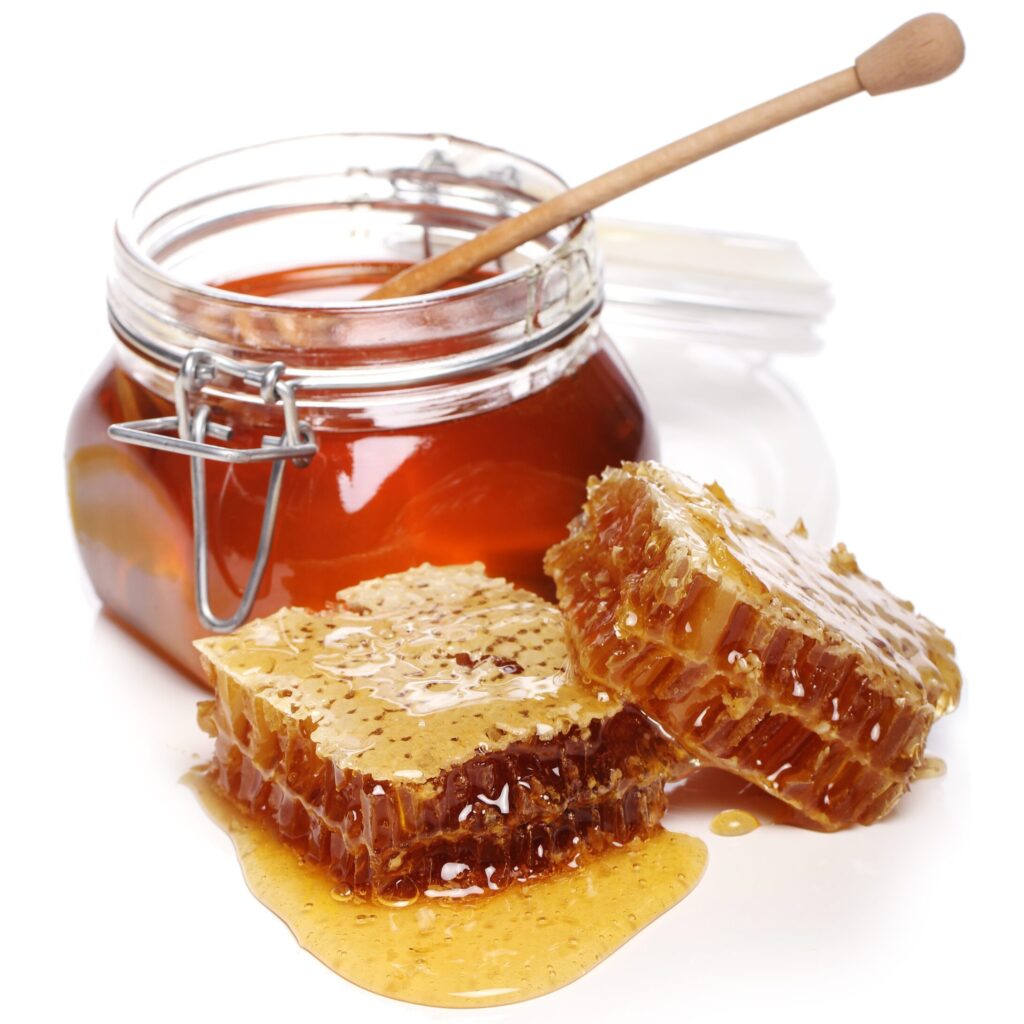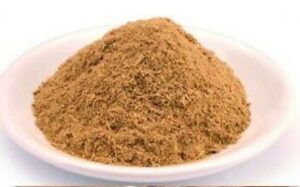10 Home Remedies for Dry Cough!
Dry coughs are a common reflex action that occurs when mucus drains down into your air passages. While coughing helps clear your airways of irritants and mucus, it can also be a warning sign of several respiratory and non-respiratory diseases. In fact, coughing is one of the most common reasons adults seek medical treatment.
There are two types of coughs: productive and nonproductive. A productive cough produces phlegm or mucus, clearing it from the lungs, while a nonproductive cough (dry cough) doesn’t produce phlegm or mucus.
However, diagnosing and managing a dry cough can be challenging due to its many possible causes. Some common causes of dry cough are asthma, gastroesophageal reflux disease (GERD), postnasal drip, and viral infections.

Other less common causes include environmental irritants such as smoke, pollution, dust, mold, and pollen, living in a dry climate, use of ACE inhibitors, whooping cough, collapsed lung, and even lung cancer in some cases. Regardless of the cause, an ongoing dry cough can greatly impact your day-to-day life, especially when it interferes with getting a good night’s sleep.

While there are many over-the-counter and prescription drugs available to treat a dry cough, they often come with side effects. Luckily, there are also effective home remedies you can try to get rid of your persistent and dry cough.
It’s important to note that if you’re having trouble breathing or coughing up blood, you should seek emergency medical help immediately.
The top 10 home remedies for dry cough are the following:
1. Raw, unfiltered apple cider vinegar:
Apple cider vinegar is another effective home remedy for a dry cough, especially if the cough is caused by heartburn or acid reflux. Here are a few ways to use apple cider vinegar to alleviate a dry cough:
Gargle: Mix 3 teaspoons of raw, unfiltered apple cider vinegar and ¼ teaspoon of cayenne pepper into a cup of warm water. Stir well and use the mixture to gargle 2 or 3 times a day to get relief from a dry, continuous cough.
Steam inhalation: To help loosen mucus and relieve coughing, mix ½ cup each of raw, unfiltered apple cider vinegar and water. Bring the mixture to a boil and remove it from the stove. Place a towel over your head and inhale the steam for 3 to 5 minutes through your nose, with your mouth and eyes closed. Repeat this process a few times a day.
Tonic: Mix 2 tablespoons of raw, unfiltered apple cider vinegar and 1 tablespoon of raw honey into a cup of warm water. Drink this tonic twice daily to help soothe your throat and reduce coughing.
It’s important to note that apple cider vinegar should be used with caution and in moderation. Excessive use can lead to tooth enamel erosion and may aggravate some medical conditions.

2. Ginger:
Ginger is an effective natural remedy for dry cough due to its expectorant properties that aid in the expulsion of mucus and phlegm, and its ability to reduce airway inflammation and contraction. Additionally, ginger possesses immune-boosting properties that promote quick recovery.

To prepare a ginger infusion,
- Cut fresh ginger into small slices and crush them slightly. add 1 teaspoon of the ginger slices and 1 cup of water to a pan and bring it to a boil, then strain it. consume up to 3 cups of this infusion daily.
- Alternatively, mix 1 tablespoon each of freshly extracted ginger juice and raw honey and consume it twice daily for a few days.
- Chewing fresh raw ginger intermittently throughout the day is another option.
3. Salt Water Gargle:
Gargling with salt water is a popular and effective home remedy for a dry cough.
The salt in the water helps to reduce inflammation and irritation in the throat, providing relief from coughing. Additionally, it can help to dislodge phlegm and mucus, making it easier to expel.

To prepare the solution,
- Add ½ teaspoon of salt to 1 cup of warm water.
- stir until the salt dissolves completely.
- Gargle with the solution for a few seconds, then spit it out.
- Repeat this process 2 or 3 times a day for a few days to experience relief from your dry cough.
Caution: Avoid using too much salt, as excessive salt can cause a burning sensation in the throat.
4. Honey:
One effective natural remedy for a dry cough is honey. A 2007 study published in the Archives of Pediatrics & Adolescent Medicine found that honey was more effective in treating cough and sleep difficulties associated with upper respiratory tract infections in children compared to over-the-counter medicines containing dextromethorphan (DM), a cough suppressant.
Honey is known to stimulate the production of saliva, which helps lubricate the airways and ease coughing. In addition, it has antioxidant properties that can combat inflammation and boost immunity.

To use honey as a cough remedy,
- Try mixing equal amounts of raw honey, ginger juice, and pomegranate juice.
- Consume 1 tablespoon of this mixture 2 or 3 times a day. Alternatively, add 1 tablespoon of honey to a cup of hot water or herbal tea and drink it twice daily.
However, it’s important to note that honey should not be given to children under the age of 1 due to an increased risk of botulism. As with any natural remedy, if symptoms persist or worsen, it’s best to consult with a healthcare professional.
5. Licorice:
Licorice is a helpful remedy for dry cough due to its expectorant and demulcent properties. It helps soothe your airways and reduces irritation in the throat that leads to coughing.
To prepare licorice tea,
- Add 2 tablespoons of licorice root to a cup of hot water, cover, and let it steep for 10 minutes. You can drink this tea up to 2 times daily.
- Alternatively, mix ½ teaspoon of licorice powder with a little honey and consume it twice daily for a few days.
Additionally, sucking on some licorice candies can also help soothe a dry cough. Licorice also has anti-inflammatory properties that aid in reducing irritation in the throat that can trigger coughing fits.


6. Fluid Intake:
To alleviate a dry cough, it is recommended to increase your fluid intake. Adequate hydration helps to thin out mucus and prevent dryness of the mucous membranes. It is advised to drink at least 8 to 10 glasses of water daily for optimal health. During an episode of dry cough, it is suggested to consume an additional 2 glasses of water daily until symptoms subside.
Cold water should be avoided, and instead, warm beverages like clear broth, warm lemon water, green tea, or warm milk should be preferred. It is important to avoid caffeine and alcohol, as they may contribute to dehydration, worsening the symptoms.
Alternatively, mix 1 tablespoon each of freshly extracted ginger juice and raw honey and consume it twice daily for a few days. Chewing fresh raw ginger intermittently throughout the day is another option.
7. Steam Inhalation:
Steam inhalation is a simple and effective home remedy to reduce inflammation in the respiratory tract and provide relief from a dry cough. Inhaling steam can also help with mucus drainage.
To enhance the antibacterial, antiviral, and anti-inflammatory effects, you can add a few drops of essential oils to the water. Some essential oils that may help relieve a dry cough include eucalyptus, peppermint, and tea tree oil.
Here’s how to do steam inhalation for dry cough:
- Boil enough water to fill a medium-sized bowl.
- Pour the hot water into the bowl.
- Add 8 to 10 drops of essential oil to the water.
- Give it a quick stir to release the vapors.
- Cover your head with a towel and lean over the bowl to inhale the steam.
- Do this for 5 to 10 minutes, 2 or 3 times a day.
In addition to steam inhalation, taking a hot shower can also help loosen secretions in the nose and provide relief from a dry cough.
8. Moist Air:
Humidifiers can provide relief from a dry cough by adding moisture to the air. When the air is dry, the nasal secretions can become dried out and lead to discomfort and worsening of symptoms. By increasing the humidity in the air, you can ease breathing and reduce the intensity of coughing fits, particularly during sleep.
- Using a humidifier in your home, especially in the room where you sleep, can be helpful.
- Adding essential oils to the water may further soothe a cough.
- Alternatively, placing a bowl of hot water in the room or a pot of water on the radiator can also increase the moisture in the air.
However, it is important to place the humidifier or water bowl in a safe location to prevent accidents.
10 Home Remedies for Dry Cough!
9. sleeping upright:
A persistent dry cough can be especially bothersome at night when you are trying to sleep. However, there is a simple remedy that can help alleviate this symptom – sleeping upright.
Keeping your upper body elevated can help make breathing easier and reduce the intensity of a dry cough. In contrast, lying flat can lead to coughing fits, which can further worsen the condition.
This method can also be helpful in cases of dry cough due to acid reflux. A flat sleeping position can trigger acid reflux, which in turn can lead to coughing.
To elevate your upper body while sleeping, place a high pillow under the mattress. This will help keep you in an upright position throughout the night, allowing you to get a restful sleep without being bothered by a dry cough.

10. Avoiding irritants:
Avoiding irritants is an essential step in managing a dry cough. Environmental and other irritants are known to be the main causes of a dry cough, and avoiding them is a must if you wish to treat a dry cough naturally.
Smoke, particularly from cigarettes, is one of the worst irritants that can cause airway irritation leading to a dry cough. Therefore, it is crucial to stop smoking and avoid places where you may get exposed to secondhand smoke.
In addition, it is important to avoid dust and other air pollutants, as they can also irritate the airways and trigger a dry cough. Wearing a face mask can help reduce exposure when you have no choice but to be in the presence of such irritants.
It is also advisable to watch out for perfumes and scented bathroom sprays that may cause sinus irritation, leading to a dry cough. By avoiding these irritants, you can reduce the frequency and intensity of your dry cough.
Additional Tips:
- It’s important to avoid giving cold and cough medicine to children under the age of 4, as it can cause serious side effects.
- If a dry cough is due to an underlying medical condition such as allergies, asthma, or acid reflux, it’s necessary to treat that issue.
- Consuming homemade chicken soup can help soothe a dry cough.
- It’s advisable to stay at home and rest if you have a fever or a bad cough. Try to avoid exposure to colds as it can worsen the condition.
- When coughing, always cover your mouth, and wash your hands frequently.
It’s also recommended to wear a mask when going out. Including vitamin C-rich foods in your diet can help shorten the duration of a cough. If you have pets, regularly bathe or groom them to reduce the amount of dander in your surroundings.
Read Also: What are the herbal remedies for pregnancy constipation?
To further know about it, Click here!











